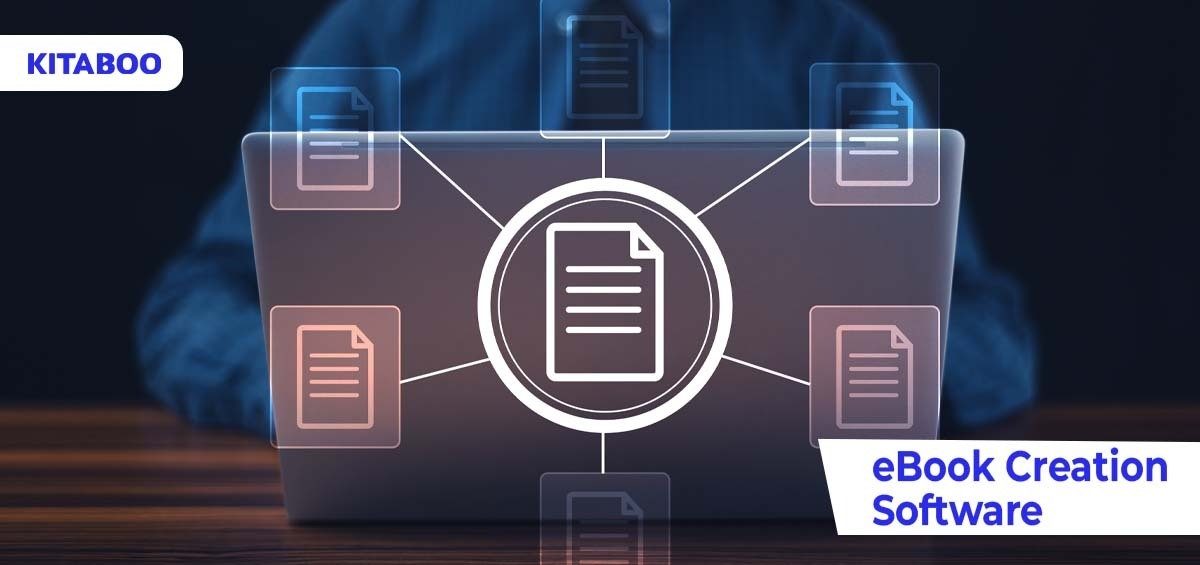The rapid rise of digital publishing, especially after the pandemic, has transformed the book publishing industry, making it easier than ever to generate and distribute material to readers worldwide.
While traditional publishing methods have their place, many publishers use eBook generation tools to expedite their publishing workflows and reach a wider audience. So, with so many software options available, how can you pick the best one for your requirements?
In this guide, we’ll look at some of the top eBook creation software solutions in the market today and help you choose the best fit for your publishing workflow.
Table of Contents
- Key Factors to Look for in an eBook Creation Software
- Top Five eBook Creation Software to Consider
Key Factors to Look for in an eBook Creation Software
There are several factors that you should keep in mind when looking for an eBook creation software solution to ensure that it meets your publishing needs. These include:
- Ease of Use: As a publishing house, whether you have a full-fledged technical team or not it’s best to look for a solution that does not have a steep learning curve. That way your workforce can adapt to the software seamlessly.
- The Features: Everyone can’t have everything. So, while choosing a software, keep your focus on your must-have features. Be it support for multiple file formats, the tools offered or the ability to integrate various media elements; anything apart from your must-haves is a bonus.
- Compatibility: Ensure the software is compatible with your existing tools and systems, such as your content management system and digital distribution platform.
- Cost and Support: Operation costs constitute a significant factor in any business decision. Look for a solution that fits your budget and offers robust customer support.
Top Five eBook Creation Software to Consider
1. Pressbooks
Pressbooks is an open-source platform that has been around since 2011. It allows publishers to create and publish eBooks in several popular formats, including ePub, MOBI, and PDF.
It is a simple and user-friendly eBook creation software offering a plethora of customization options for formatting, styling, and layout.
One of the main advantages of Pressbooks is that it is designed specifically for educational eBook publishing, thus providing all the tools and features publishers and educators need. It also features an easy-to-use interface and integration with various eBook distribution platforms.
Pros
- Supports multiple export formats, including ePub, MOBI, and PDF.
- Easy-to-use interface for basic formatting and customization.
- Integration with a range of eBook distribution platforms.
Cons:
- Limited multimedia integration options.
- Limited support for advanced design and layout features.
- Limited support for non-English languages.
2. Sigil
Sigil is another open-source software that allows you to create and edit ePub files. It has a user-friendly interface that offers advanced features such as spell-check, a table of contents generator, and a metadata editor.
One of the main advantages of Sigil is its ability to create professional-looking eBooks that meet all the industry standards of today.
Pros:
- Comprehensive eBook creation and editing software.
- Offers advanced editing options, including HTML and CSS editing.
- Completely free to use.
Cons:
- The interface can be overwhelming for new users.
- Limited multimedia integration options.
- Limited customer support.
3. Scrivener
Scrivener is a comprehensive writing software allowing you to create and organize eBook content. It offers a range of tools for research, outlining, and formatting. It also supports formats such as ePub, MOBI, and PDF.
Pros:
- Provide a wide range of tools to help authors create high-quality eBooks.
- Advanced customization options for formatting and layout.
- Integration with a range of Learning Management Systems.
Cons:
- It may be more expensive than other options.
- Some advanced features may require additional software or tools.
- Limited support for multimedia integration.
4. B&N Press (Formerly Nook Press)
B&N Press is a self-publishing platform from booksellers and publishers Barnes & Noble. The platform offers a user-friendly interface and a range of formatting and customization options, making creating and publishing high-quality eBooks easy.
Pros:
- User-friendly interface that requires no coding experience.
- Offers a range of design templates and multimedia integration options.
- Integration with Barnes & Noble’s Nook devices and platform.
Cons:
- Limited to publishing on Nook devices.
- Limited customizability for advanced users.
- It can be slow and laggy at times.
5. KITABOO
KITABOO is a cloud-based eBook software solution that enables educational content creators and publishers to create interactive and engaging eBooks.
Pros:
- Supports creation, publishing and distribution of any kind of educational content.
- Device & OS agnostic.
- Provides detailed analytics.
Cons:
- Not suitable for independent authors.
- No free trial.
- While content can be published in multiple languages, the backend support provided is only in English.
Summing It Up
Choosing the right eBook creation software can be critical for publishers looking to optimize their publishing workflows and reach wider audiences.
By considering factors such as ease of use, features and capabilities, compatibility, cost, and support, you can select a software tool that fits your needs and helps you easily create professional-quality digital content.
Whether you’re a small independent publisher or a large publishing company, the right eBook creation software can provide the tools to create engaging and visually appealing content that captivates readers and enhances your publishing business.
To know more on how to get started with an eBook software, write to us at KITABOO@hurix.com.
Discover How An Ebook Conversion, Publishing & Distribution Platform Can Help You
Kitaboo is a cloud-based content platform to create-publish & securely distribute interactive mobile-ready ebooks.
You May Also Like
-
-
Crafting Interactive eBooks: A Step-by-Step Guide
Blog,Digital Publishing,eBook solution / February 29, 2024






